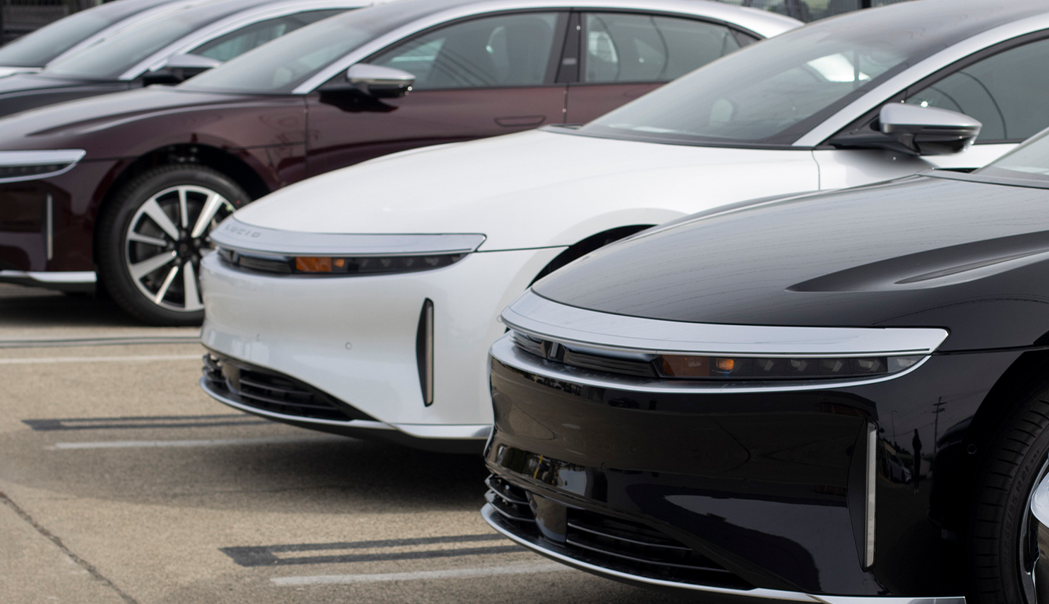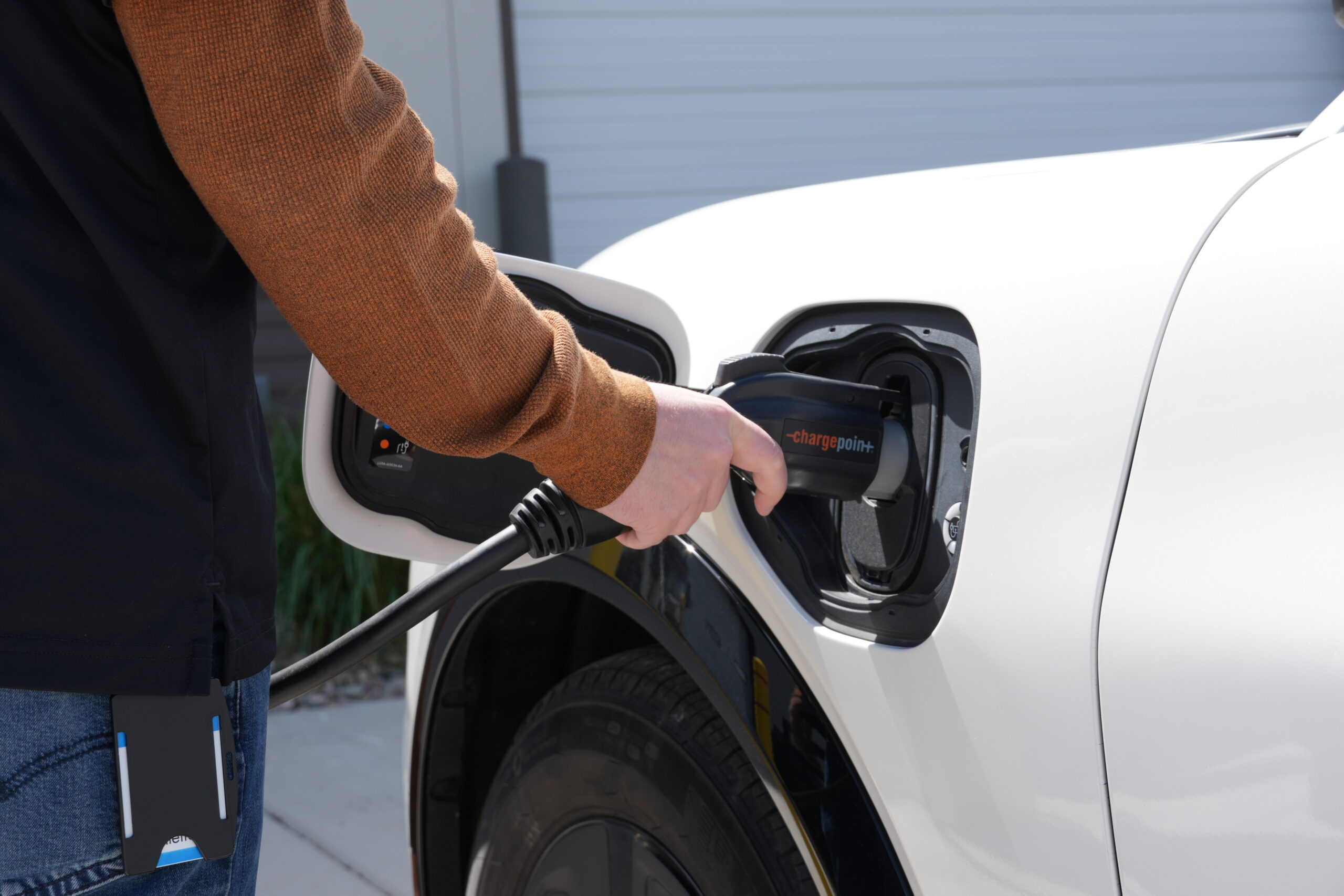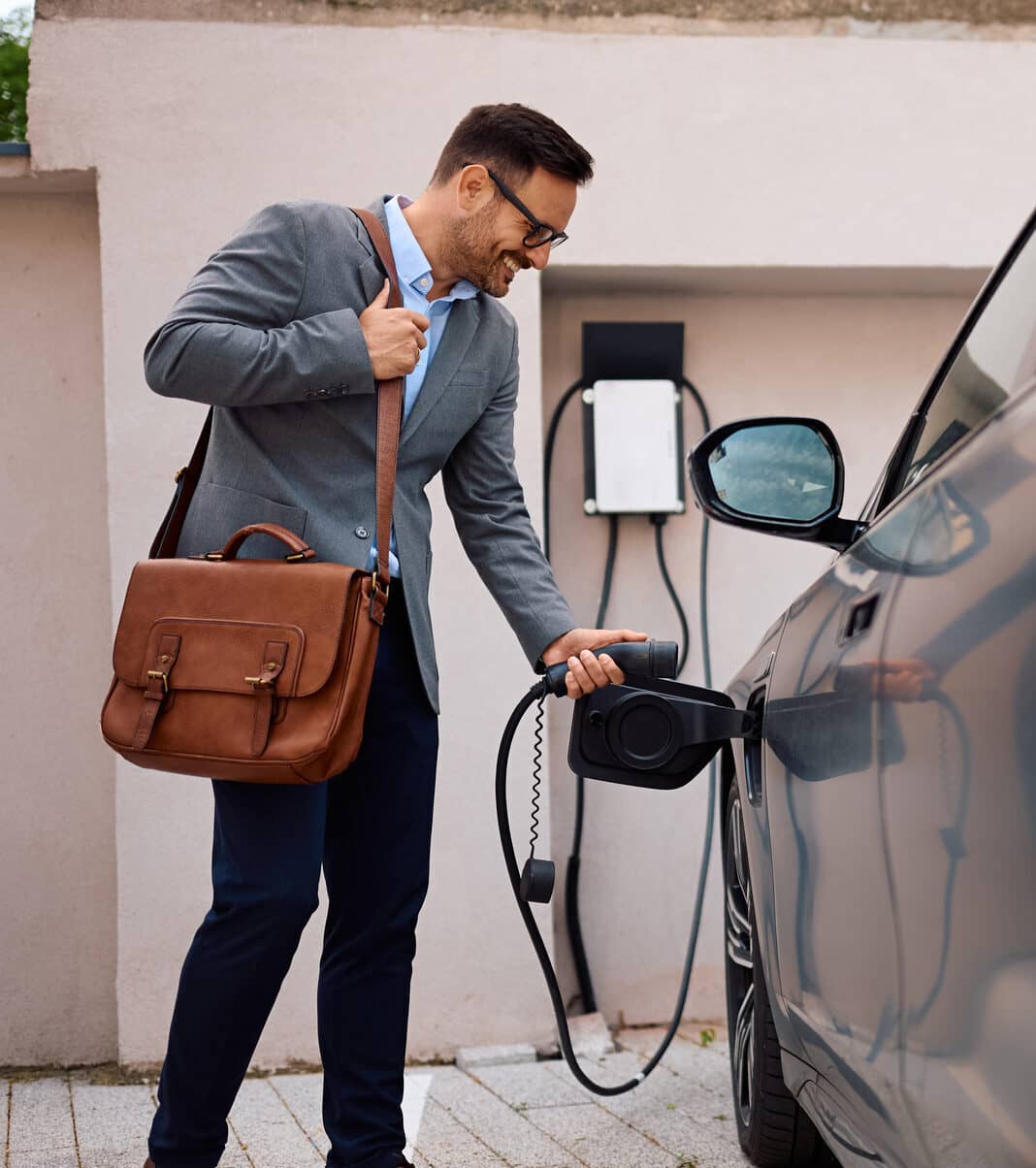Make the switch to electric
Learn all about EVs for your home or your business.
What are electric vehicles (EVs)?
Electric vehicles (EVs) are vehicles that are powered, fully or partially, by electricity. EVs use electric motors powered by batteries, instead of traditional internal combustion engines fueled by gasoline or diesel. EVs produce zero tailpipe emissions.

What are the benefits of EVs?
EVs offer a variety of benefits, including reduced fuel costs, lower maintenance and reduced environmental impacts. They also provide a more convenient and potentially enjoyable driving experience, along with potential tax credits and incentives. The battery on an EV can also be used as an energy storage system for your home.

EVs at home
Owning an electric vehicle is convenient and efficient, especially with the ease of charging both at home and on the go. At home, you can simply plug into a standard wall outlet with a Level 1 charger, or for faster charging, install a Level 2 home charger with the help of a professional electrician.
Public charging is becoming increasingly accessible with new charging stations opening every day. Use locator maps like ChargeHub or PlugShare to find the nearest stations and keep your EV ready for any adventure. When you’re ready to start shopping, see available vehicles or find answers to your most frequently asked EV questions.

Rebates and programs
Explore available incentives to help you save on the purchase of a new or used electric vehicle, or the installation of charging equipment. We’ve created a comprehensive list of state and local incentives, including rebates and tax credits, to help reduce your upfront purchase costs and make going electric a more affordable choice. For more information on electric vehicle incentives, visit the U.S. Department of Energy, or visit our dedicated EV website.

Where to charge your EV

Frequently asked questions about EVs

What are the benefits of owning an EV?
Electric vehicles offer numerous benefits, including lower fuel costs, reduced maintenance expenses and zero tailpipe emissions, making them environmentally friendly. EVs also provide a smoother, quieter ride. Many EVs are eligible for state tax credits and rebates.

How do I charge an EV?

What incentives are available for purchasing an EV in Colorado?
Colorado offers various incentives, including state tax credits, rebates and federal incentives. These can reduce the upfront cost of purchasing an electric vehicle.

How far can an EV travel on a single charge?
The range of an EV varies by model, but most modern electric vehicles can travel between 150 to 300 miles on a single charge. Some higher-end models can exceed 300 miles.

Are EVs suitable for Colorado's climate?
Yes, electric vehicles are designed to perform well in various climates, including Colorado’s cold winters. Many EVs have features like battery thermal management systems to maintain performance in extreme temperatures.

